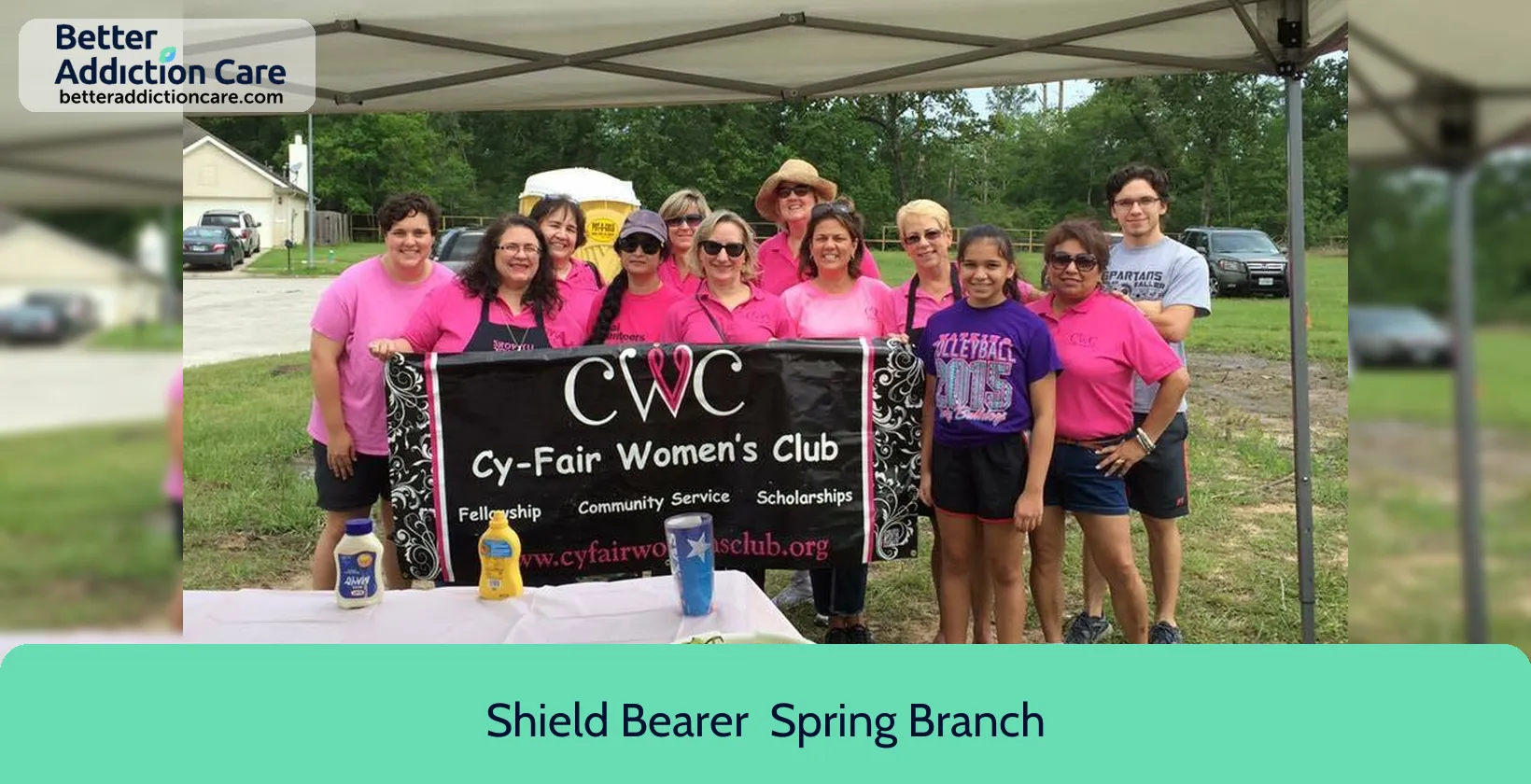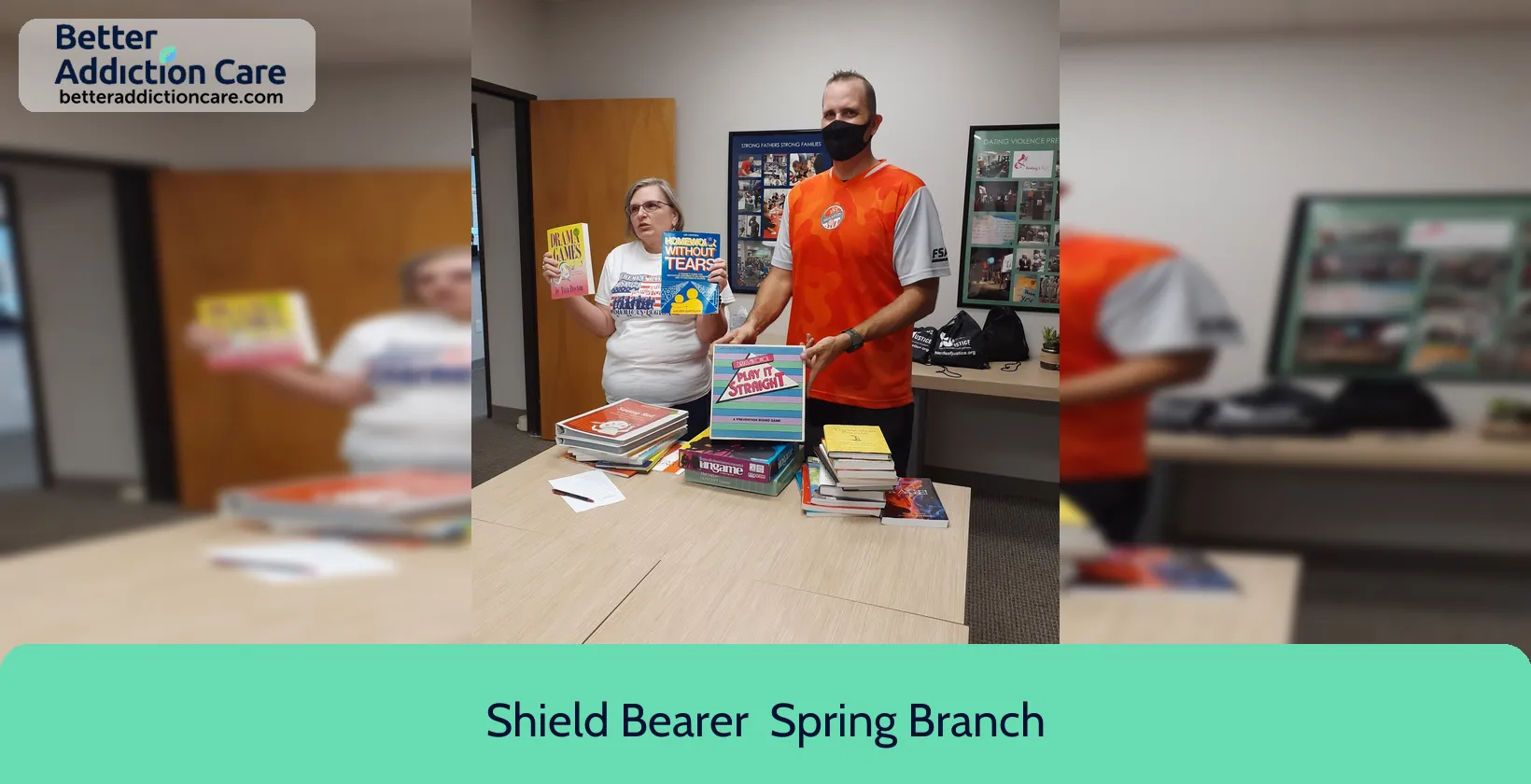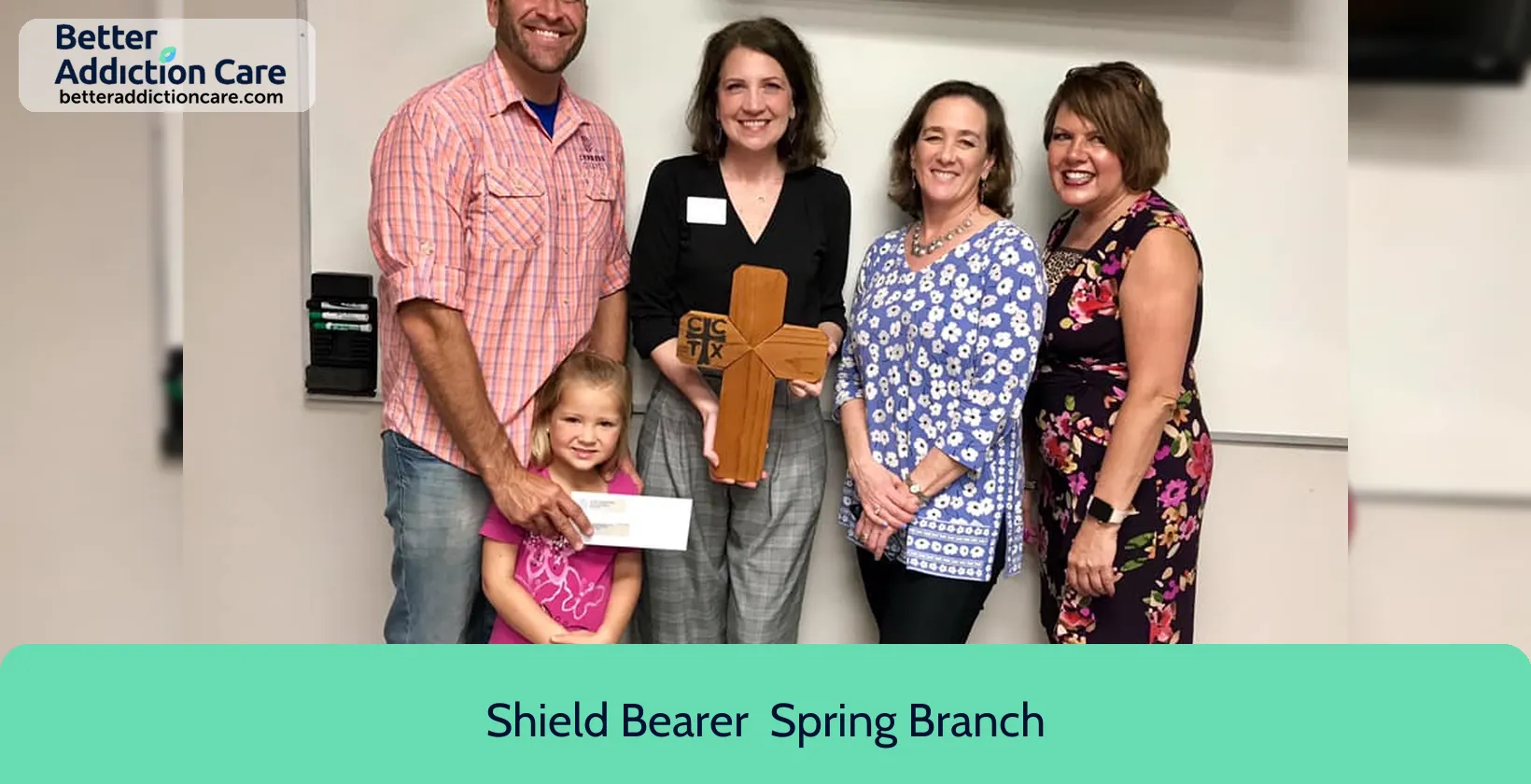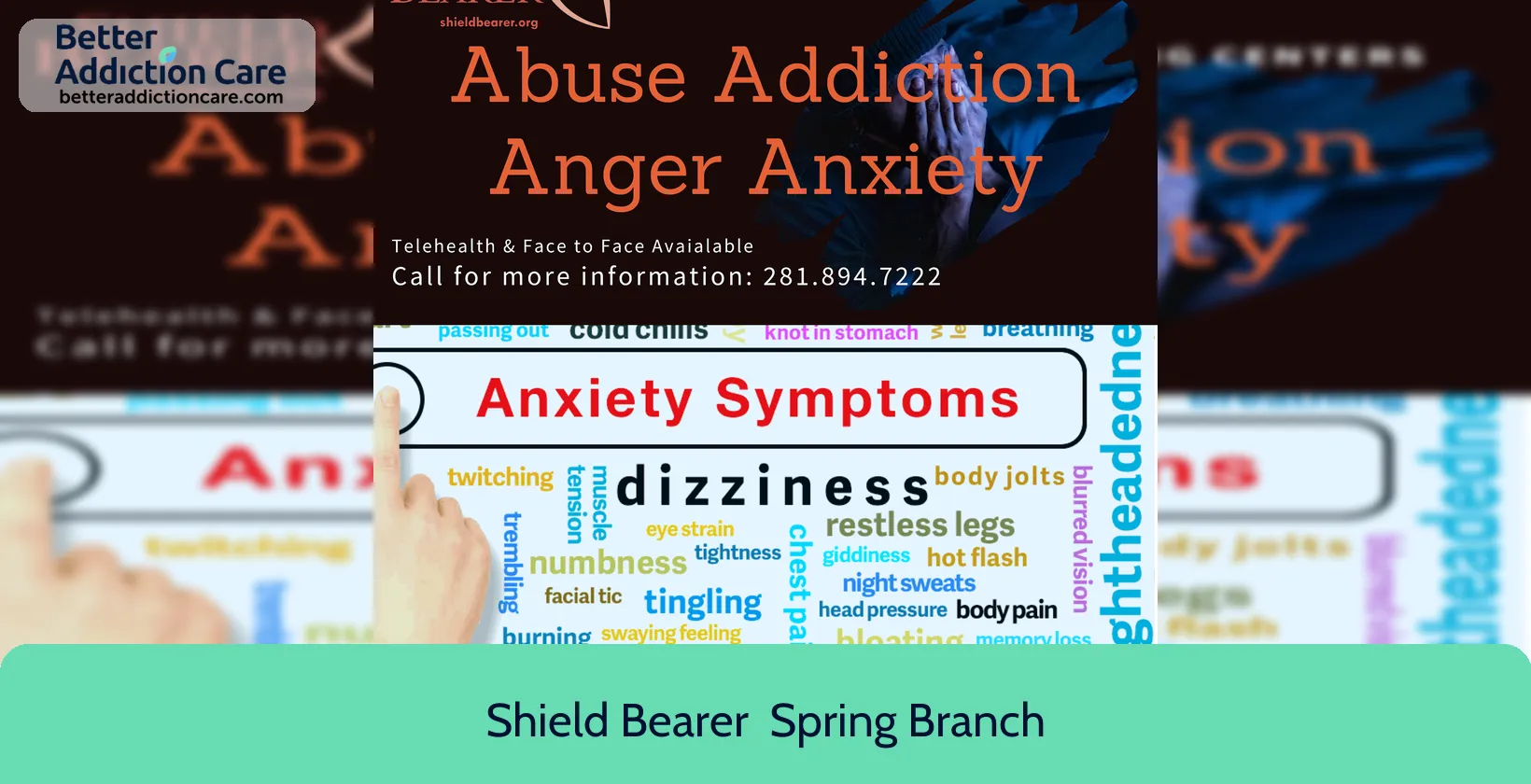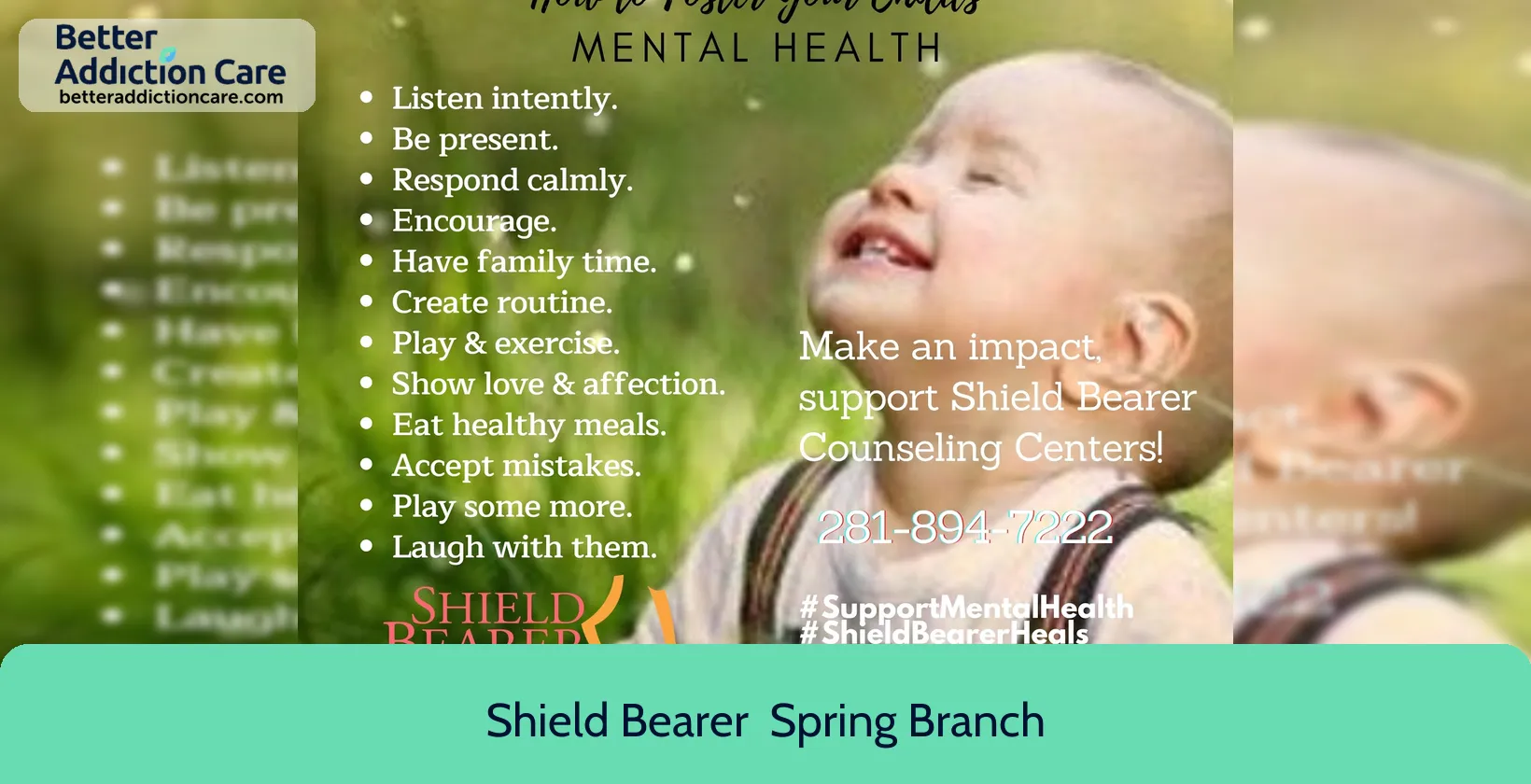Overview
Shield Bearer - Spring Branch is a mental health treatment center for people seeking treatment near Harris County. As part of their treatment modalities for recovery, Shield Bearer - Spring Branch provides couples/family therapy, group counseling, and cognitive behavioral therapy during treatment. Shield Bearer - Spring Branch is located in Houston, Texas, accepting cash or self-payment for treatment.
Shield Bearer - Spring Branch at a Glance
Payment Options
- Cash or self-payment
- Medicaid
- Private health insurance
- Federal military insurance (e.g., TRICARE)
- Sliding fee scale (fee is based on income and other factors)
Assessments
- Comprehensive mental health assessment
- Comprehensive substance use assessment
Age Groups
- Seniors or older adults
- Young adults
- Children/adolescents
- Adults
- Seniors
Ancillary Services
- Intensive case management
- Case management service
- Chronic disease/illness management
- Court-ordered outpatient treatment
- Diet and exercise counseling
Highlights About Shield Bearer - Spring Branch
6.77/10
With an overall rating of 6.77/10, this facility has following balanced range of services. Alcohol Rehabilitation: 8.00/10, Drug Rehab and Detox: 6.00/10, Insurance and Payments: 6.00/10, Treatment Options: 7.09/10.-
Alcohol Rehabilitation 8.00
-
Treatment Options 7.09
-
Drug Rehab and Detox 6.00
-
Insurance and Payments 6.00
Treatment At Shield Bearer - Spring Branch
Treatment Conditions
- Mental health treatment
- Alcoholism
- Substance use treatment
Care Levels
- Outpatient
Treatment Modalities
- Couples/family therapy
- Group counseling
- Cognitive behavioral therapy
- Dialectical behavior therapy
- Integrated Mental and Substance Use Disorder treatment
Ancillary Services
Languages
- Sign language services for the deaf and hard of hearing
- Spanish
- Other languages (excluding Spanish)
- French
- Russian
Special Programs
- Clients with co-occurring mental and substance use disorders
- Veterans
- Active duty military
- Members of military families
- Criminal justice (other than DUI/DWI)/Forensic clients
Get Help Now
Common Questions About Shield Bearer - Spring Branch
Contact Information
Other Facilities in Houston

6.56

6.62

6.83

6.80

6.92

6.85

6.77

6.59
DISCLAIMER: The facility name, logo and brand are the property and registered trademarks of Harris Center for Mental Health and IDD - Bristow Center - PATH, and are being used for identification and informational purposes only. Use of these names, logos and brands shall not imply endorsement. BetterAddictionCare.com is not affiliated with or sponsored by Harris Center for Mental Health and IDD - Bristow Center - PATH.
